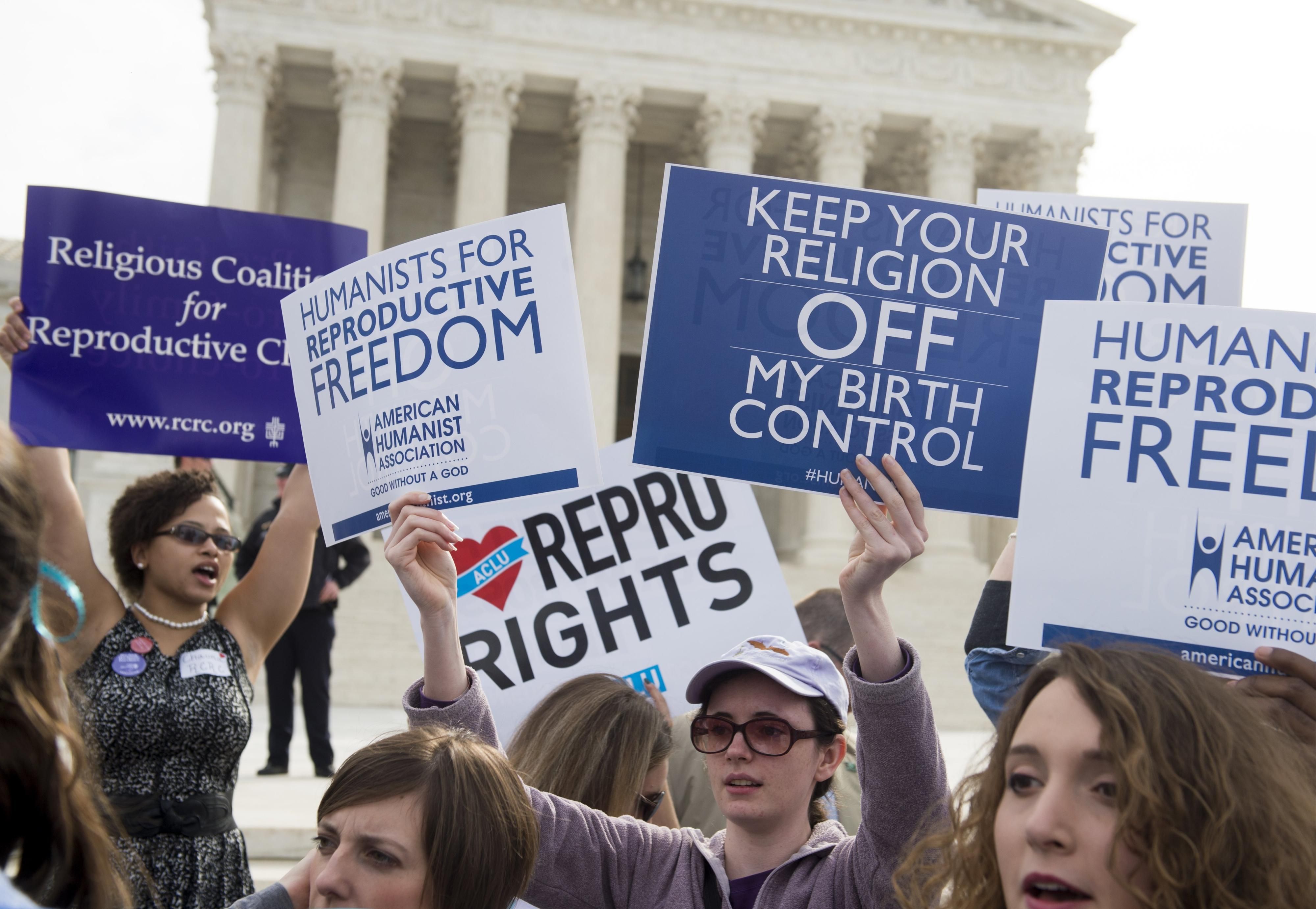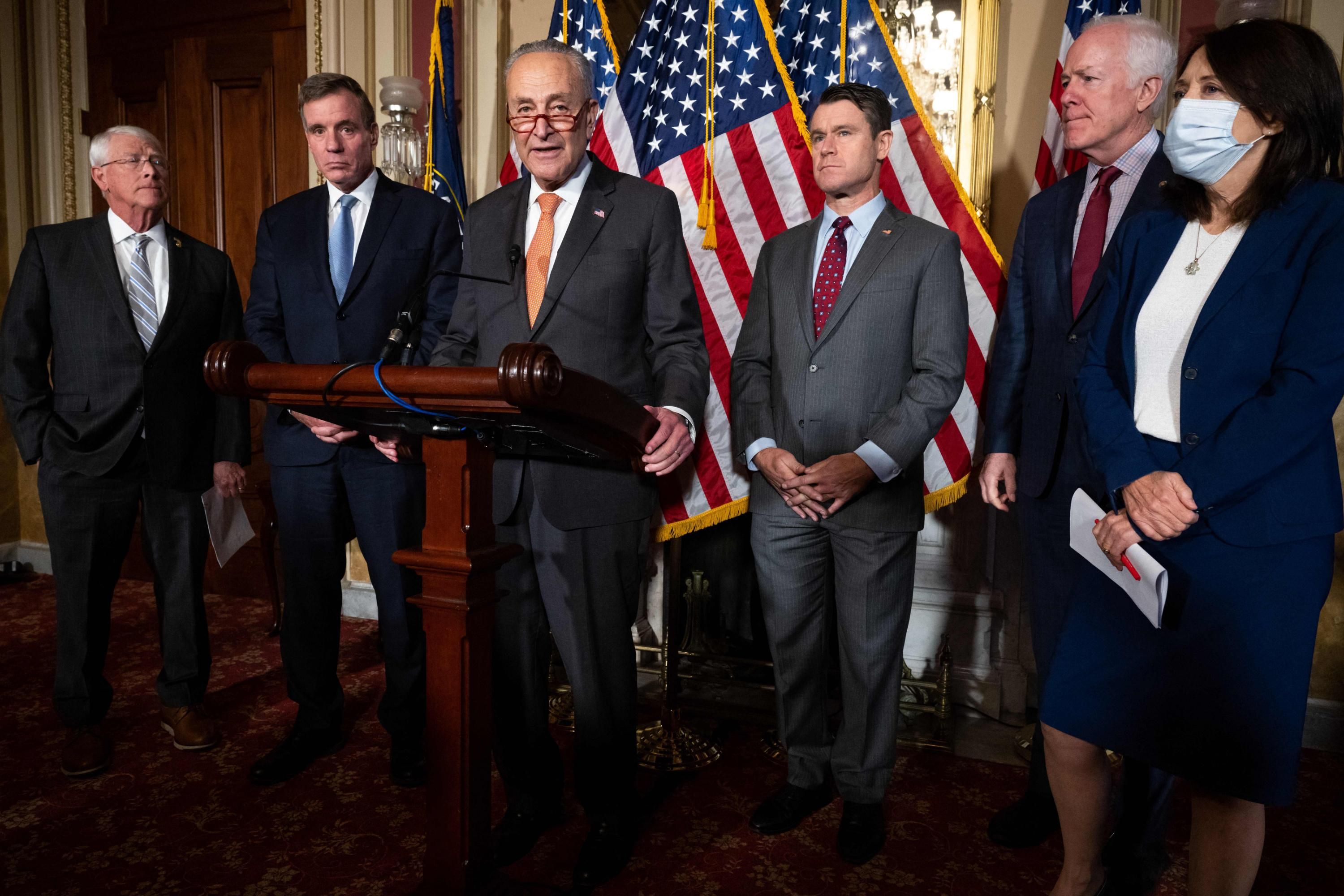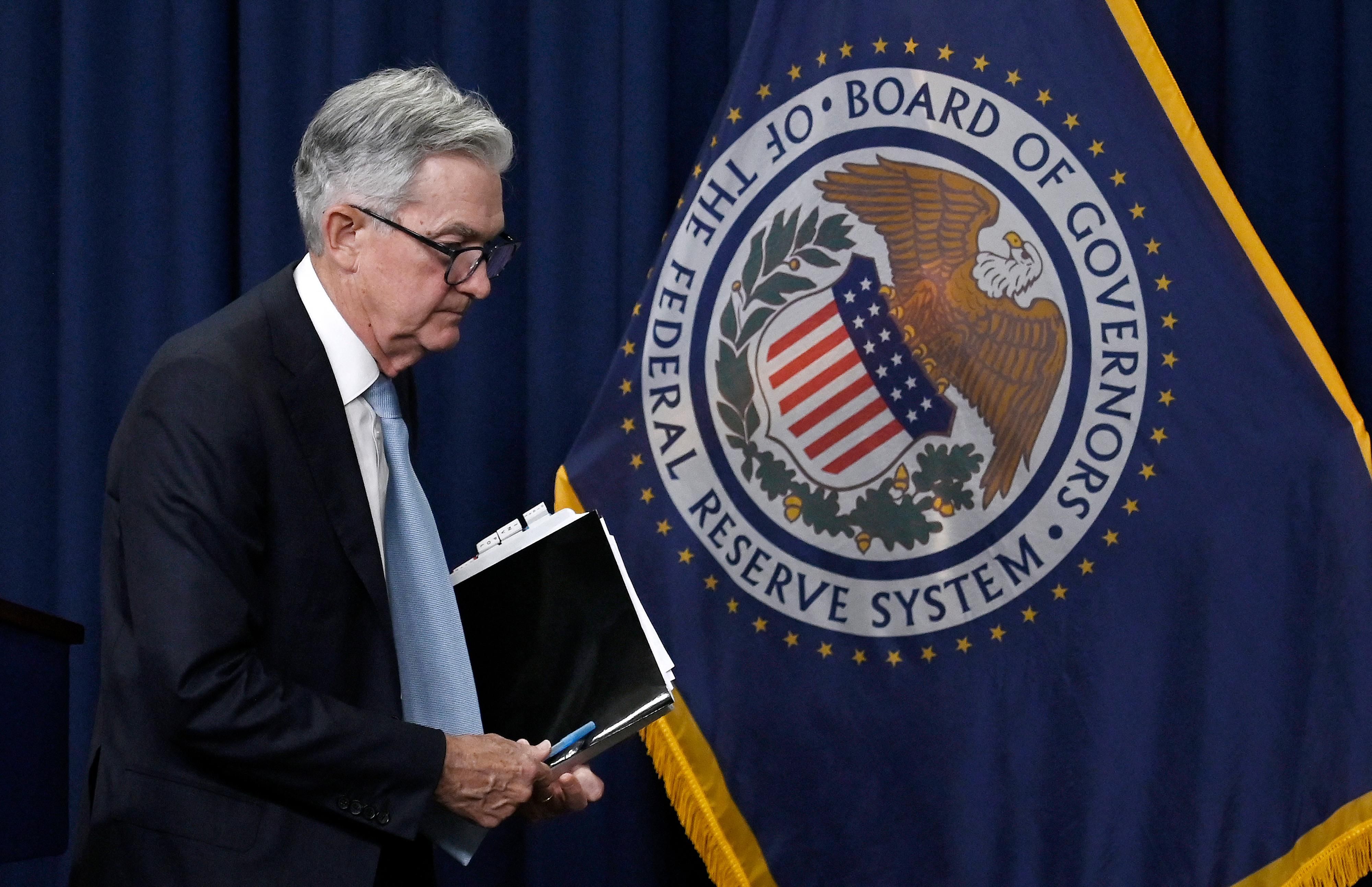
'Beyond Unacceptable': Progressives Rip Senate Republicans for Blocking Birth Control Bill
"Today, Republicans showed the American people where they stand: No abortions, and no birth control to prevent the need for one," said Sen. Ed Markey.
BRETT WILKINS
Democratic U.S. lawmakers and reproductive freedom advocates on Wednesday denounced Senate Republicans for blocking proposed legislation that would safeguard access to contraception as GOP-led states enact total abortion bans in the wake of Roe v. Wade's reversal.
"These extremists are pulling back the curtain to reveal just how out of touch they are with Americans. Voters won't forget it come November."
Arguing that the bill "purposefully goes far beyond the scope of contraception," Sen. Joni Ernst (R-Iowa) objected to a request from Sen. Ed Markey (D-Mass.) to pass the Right to Contraception Act by unanimous consent.
The House of Representatives passed the measure—which would codify the right to obtain and use contraceptives and protect physicians who provide them—last week. Just eight Republican House lawmakers joined all 220 of their Democratic colleagues in voting for the bill.
"It has been nearly 60 years since the Supreme Court decided Griswold v. Connecticut—and affirmed Americans' right to privacy and with it: their right to contraception," Sen. Patty Murray (D-Wash.) said in a statement. "So you'd think this would be a settled issue. And for the vast majority of Americans—it is. Yet, as we just saw, somehow—in the year 2022—this isn't a settled issue for Republican politicians."
Markey asserted that "today, Republicans showed the American people where they stand: No abortions, and no birth control to prevent the need for one. The right-wing extremists in the United States Senate and on the Supreme Court are way out of touch with the vast majority of the American people, and yet they still want to tell them what to do with their bodies and their lives.
"While Republicans refuse to protect our fundamental rights as the Supreme Court and right-wing state legislatures take them away," Markey added, "my Democratic colleagues and I will continue our efforts to keep in place the fundamental, privacy-based rights that Americans have had for decades, and codify into federal law the right to contraception."
Progressive activists have been warning that access to contraceptives could be imperiled by the U.S. Supreme Court's right-wing supermajority. In his concurring opinion in Dobbs v. Jackson Women's Health Organization, the 6-3 May ruling that voided half a century of constitutional abortion rights, Justice Clarence Thomas explicitly took aim at Griswold—as well as landmark cases legalizing same-sex intimate relations and marriage—as previous high court decisions that should be revisited.
Reproductive rights groups echoed the Democratic senators' frustration and resolve.
"Senate Republicans' refusal to protect contraception access is beyond unacceptable," NARAL Pro-Choice America president Mini Timmaraju said in a statement. "As our country grapples with the ripple effects of the Supreme Court ending the right to abortion, MAGA Republicans continue to find every excuse to exert power and control over us all."
"Contraception is a key way people can decide if, when, and how to start or grow a family," she added, "and these extremists are pulling back the curtain to reveal just how out of touch they are with Americans. Voters won't forget it come November."
Our work is licensed under Creative Commons (CC BY-NC-ND 3.0). Feel free to republish and share widely.
Nearly every House Republican votes against codifying right to contraception
"If they had the chance they would ban it," said Rep. Ilhan Omar (D-Minn.).
With many lawmakers expressing disbelief that a law codifying the right to use birth control is needed in the U.S. in 2022, House Democrats passed the Right to Contraception Act on Thursday—joined by just eight Republicans as the party denied access to contraception is under attack.
All 220 Democrats voted in favor of the bill.
“One hundred ninety-five House Republicans just voted against protecting your right to access contraception,” said Rep. Bonnie Watson Coleman (D-N.J.).
“Birth control is a basic form of healthcare we ALL deserve to access.”
The legislation defines contraception as “any drug, device, or biological product intended for use in the prevention of pregnancy, whether specifically intended to prevent pregnancy or for other health needs, that is legally marketed under the Federal Food, Drug, and Cosmetic Act, such as oral contraceptives, long-acting reversible contraceptives, emergency contraceptives, internal and external condoms, injectables, vaginal barrier methods, transdermal patches, and vaginal rings, or other contraceptives.”
Rep. Kathy Manning (D-N.C.) introduced the bill weeks after the U.S. Supreme Court’s right-wing majority overturned Roe v. Wade, eliminating the right to abortion care for millions of women and likely reducing access to abortions even in states where the right is still protected.
In an opinion concurring with the ruling, Justice Clarence Thomas wrote that “in future cases, we should reconsider all of the Court’s substantive due process precedents, including Griswold, Lawrence, and Obergefell,” naming cases that affirmed Americans have the right to contraception, same-sex relationships, and marriage equality.
Thursday’s vote showed that opposition to contraceptive rights “is not just an opinion of one man,” said Rep. Andy Kim (D-N.J.). “This is their plan.”
“If they had the chance they would ban” contraception, Rep. Ilhan Omar (D-Minn.) added.
Earlier this week, the House passed a bill codifying the right of same-sex couples to marry, with the vast majority of Republicans voting against it.
After the ruling overturning Roe was handed down, a health system in Missouri—where abortion is now banned—temporarily stopped providing emergency contraception, better known as Plan B, saying the state needed to “better define” its abortion ban.
Republicans in Missouri have also tried to stop Medicaid funding from being used for contraception.
GOP legislators on Thursday, however, claimed the right to access contraception is not being threatened, with Rep. Cathy McMorris Rodgers (R-Wash.) accusing the Democrats of “spreading fear and misinformation” and calling the bill “a Trojan horse for more abortions.”
After the House bill passed, advocates called on the Senate to promptly pass the Right to Contraception Act, which was introduced by Sens. Ed Markey (D-Mass.), Tammy Duckworth (D-Ill.), and Mazie Hirono (D-Hawaii) this week.
Republicans in the Senate have also denied people are at risk of losing their right to use contraception, with Sen. John Cornyn (R-Texas) calling the Democrats’ efforts “pure hysteria.”
“Birth control is a basic form of healthcare we ALL deserve to access,” said the Leadership Conference on Civil and Human Rights after the House bill was passed. “Senate must follow.”













